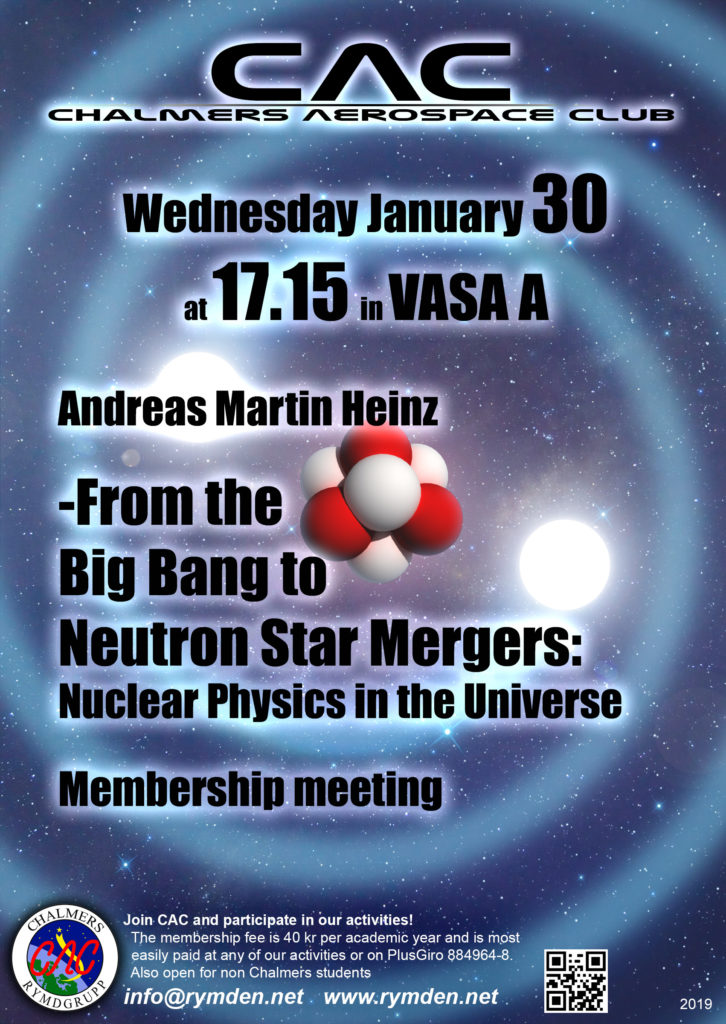Andreas Martin Heinz
From the Big Bang to Neutron Star Mergers: Nuclear Physics in the Universe


The physics of atomic nuclei plays a key role in the universe. Nuclear reactions and decaysprovide energy for processes ranging from stellar burning to supernovae. Those reactions anddecays are also responsible for the formation of heavier nuclei. Already in the aftermath ofthe Big Bang nuclear reactions took place, producing mainly helium. Essentially all heaviernuclei were produced in stars, stellar explosions and, as we now know, neutron-star mergers.Understanding the underlying nuclear physics provides therefore insight into a wide varietyof astrophysical processes, which started the growing field of nuclear astrophysics.
This lecture will provide an overview of key nuclear processes in the universe, relevant forenergy production and nucleosynthesis, and discusses some of the experimental methodsused to investigate key nuclear reactions and decays in the laboratory. The challenges of thoseexperiments are often staggering, as some processes are very unlikely or as the nuclei involvedexist sometimes only fractions of a second – if they are known at all. Modern, large-scaleaccelerator facilities and underground laboratories are the key to push the experimental limitsand to improve our understanding of nuclei and the universe.
After lecture we have yearly members meeting.
Datum och tid: 30:e januari kl 17:15
Movie: Edge of Tomorrow (2014)

Lacation: Vasa A. (See map for directions)

